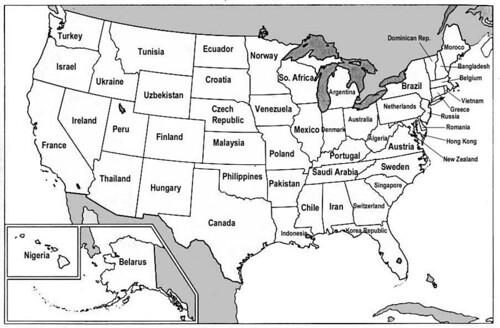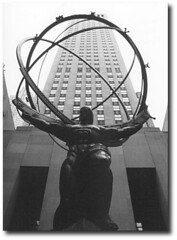Whenever this blog may roam
I've decided to give WordPress a try.
Here is the new address for this blog: http://fyiblog.wordpress.com/
"Being ignorant is not so much a shame, as being unwilling to learn." Benjamin Franklin
I've decided to give WordPress a try.
Here is the new address for this blog: http://fyiblog.wordpress.com/
Posted by fyi at 1:45 AM 0 comments
Juan Williams, for the Herald Tribune:
"Let us now praise the Brown decision. Let us now bury the Brown decision. With the Supreme Court ruling ending the use of voluntary schemes to create racial balance among students, it is time to acknowledge that Brown's time has passed.
...
Desegregation does not speak to dropout rates that hover near 50 percent for black and Hispanic high school students. It does not equip society to address the so-called achievement gap between black and white students that mocks Brown's promise of equal educational opportunity.
...
In 1990, after months of interviews with Justice Thurgood Marshall, who had been the lead lawyer for the N.A.A.C.P. Legal Defense Fund on the Brown case, I sat in his Supreme Court chambers with a final question. Almost 40 years later, was he satisfied with the outcome of the decision?
...
His response was that seating black children next to white children in school had never been the point. It had been necessary only because all-white school boards were generously financing schools for white children while leaving black students in overcrowded, decrepit buildings with hand-me-down books and underpaid teachers.
He had wanted black children to have the right to attend white schools as a point of leverage over the biased spending patterns of the segregationists who ran schools across much of America.
If black children had the right to be in schools with white children, Marshall reasoned, then school board officials would have no choice but to equalize spending to protect the interests of their white children.
Racial malice is no longer the primary motive in shaping inferior schools for minority children. Many failing big city schools today are operated by black superintendents and mostly black school boards.
And today the argument that school reform should provide equal opportunity for children, or prepare them to live in a pluralistic society, is spent. The winning argument is that better schools are needed for all children - black, white, brown and every other hue - in order to foster a competitive workforce in a global economy.
Dealing with racism and the bitter fruit of slavery and "separate but equal" legal segregation was at the heart of the court's brave decision 53 years ago. With Brown officially relegated to the past, the challenge for brave leaders now is to deliver on the promise of a good education for every child."
Posted by fyi at 2:54 PM 0 comments
If you are an old time geek like me, you might remember the series "Bits & Bytes" (broadcasted in Brazil by TV Cultura I believe). Check these out:
The Difference Between Apple ][ and TRS-80
Bits & Bytes - Home Accounting
Bits & Bytes - ROM and RAM
Bits & Bytes - The Computer's Speed
BONUS: Billy Learns French on the Atari 800
The good old days :-)
Posted by fyi at 3:12 PM 0 comments
Labels: Miscellaneous

PETA has a message for Michael Moore: You’re the Sicko.
The animal-rights group is blasting the filmmaker as a hypocrite for criticizing the U.S. healthcare system in his new documentary, “Sicko,” because they say he’s in such poor health himself.
“There’s an elephant in the room, and it is you,” PETA president Ingrid Newkirk wrote in a letter to Moore.
HAHAHAHAHAHAHAHAHAHAHAHAHA!
Posted by fyi at 1:36 PM 0 comments
Labels: Left-wing
New record: Americans give $300 billion to charity
"Americans gave nearly $300 billion to charitable causes last year, setting a new record and besting the 2005 total that had been boosted by a surge in aid to victims of hurricanes Katrina, Rita and Wilma and the Asian tsunami.
Donors contributed an estimated $295.02 billion in 2006, a 1 percent increase when adjusted for inflation, up from $283.05 billion in 2005. Excluding donations for disaster relief, the total rose 3.2 percent, inflation-adjusted, according to an annual report released Monday by the Giving USA Foundation at Indiana University's Center on Philanthropy.
...
Individuals gave a combined 75.6 percent of the total. With bequests, that rises to 83.4 percent.
The biggest chunk of the donations, $96.82 billion or 32.8 percent, went to religious organizations. The second largest slice, $40.98 billion or 13.9 percent, went to education, including gifts to colleges, universities and libraries.
About 65 percent of households with incomes less than $100,000 give to charity, the report showed.
...
Gaudiani said Americans give twice as much as the next most charitable country, according to a November 2006 comparison done by the Charities Aid Foundation. In philanthropic giving as a percentage of gross domestic product, the U.S. ranked first at 1.7 percent. No. 2 Britain gave 0.73 percent, while France, with a 0.14 percent rate, trailed such countries as South Africa, Singapore, Turkey and Germany."
Posted by fyi at 12:41 AM 2 comments
Labels: Charity
I was watching a cold war documentary this weekend and noticed that the word “Détente” was mentioned several times. Honestly I didn’t even know what it meant so I looked it up:
“Détente is a French term, meaning a relaxing or easing; the term has been used in international politics since the early 1970s. Generally, it may be applied to any international situation where previously hostile nations not involved in an open war "warm up" to each other and threats de-escalate. However, it is primarily used in reference to the general reduction in the tension between the Soviet Union and the United States and a thawing of the Cold War, occurring from the late 1960s until the start of the 1980s.”
Ah, that worked out great. Obviously it had to be a French word.
---x---
Every time I see footage of the US at the end of the 70s I get spooked. The strikes, the complete lack of confidence, the economic mess created by FDR and all the boobs that came after him… I almost threw up when I saw Carter kissing Brezhnev, and when Ford denied that the Helsinki Accords were confirming our defeat in East Europe.
That was really a time when things were spinning out of control and I believe that Reagan’s victory was like a last minute lucky strike. Another 4 years and things could have really been lost.
---x---
Another thing that is clear when we compare our current situation with the cold war is that terrorism is really a small problem compared to communism. I know there are people dying and that is always sad and clearly 9/11 was a horrendous day. But putting in perspective, we live in a much more stable and prosperous world today. Bin Laden and his thugs are dangerous but comparing them to the old USSR is really ludicrous.
Posted by fyi at 1:31 PM 1 comments
Labels: Global politics, US politics, war
Palestine is the land of charlatans and murderers. Why? If the problem is Israel, how can these people behave so badly amongst themselves?
The answer could be Foreign Aid. Despite the international embargo on aid to the Palestinian Authority since Hamas came to power a year ago, The International Monetary Fund and the United Nations say the Palestinians received $1.2 billion in aid and budgetary support in 2006, about $300 per capita, compared with $1 billion in 2005.
According to the German newspaper Die Welt, Palestine is the world's largest per capita recipient of foreign aid.
So why would Fatah do anything differently? When things are bad they get even more money. Take a look at what happened to Suha Arafat. Oh, the revolution life is much sweeter from Paris.
How about Hamas? How can it exist when the West is pouring money into Fatah’s pockets like there is no tomorrow?
Well, let’s see what Mahmoud Zahar, co-founder of Hamas has to say:
“SPIEGEL ONLINE: The international community plans to release all the aid money it has withheld from Palestinians for over a year to the Fatah government in the West Bank. Will the West Bank become a kind of luxury-Palestine, while the Gaza Strip starves?
Zahar: Fatah in the West Bank will receive money, and they will have to pass it on to Gaza. If it doesn't, it will lose Gaza forever. We would also have to search for alternatives. We have a very good image among people throughout the Arab world. If we want, we can get $5 million per month in donations from Egypt. We have also received money from foreign countries in the past -- $82 million from Kuwait, $50 million from Libya. I personally once brought $20 million from Iran to the Gaza Strip in a suitcase. No, actually twice -- the second time it was $22 million.”
So why would they change? The charlatans might become murderers, and the murderers can become charlatans.
But that’s pretty much all you can get.
Posted by fyi at 3:18 PM 0 comments
Labels: Palestine
Via Claudio:
Dutch Cannabis Buyers Face Biometric Testing
"All 15 coffee shops in the southern city are spending about 100,000 euros ($134,000) installing a security system that makes it harder for an under-age cannabis smoker to enter than a terrorist to set foot in Europe, according to Marc Josemans, head of the local coffee shop union."
This reminds me something I’ve always think about: the odd absence of data about the consequences of “drug liberalization” in the Netherlands. For such a unique and grand experiment one would think that loads of data would be available.
Now considering the message sent by this type of measure and also considering the fact that the so called liberalization has not moved forward (Why 5 grams? Why only pot?) I assume that not everything is roses in the land of the free buzz…
Posted by fyi at 2:45 PM 1 comments
Labels: Drug war, Social issues
This is very interesting... and confirms my theory that a "life of leisure" is nothing but a fantasy and in most cases leads to disaster (think Paris Hilton).
"It is vacation season once again, giving occasion for the usual homilies about how Europeans are having a much better and healthier time of it than we are when it comes to work. You've heard it a thousand times: Americans "live to work," while Europeans "work to live."
By almost every measure, Europeans do work less and relax more than Americans. According to data from the Organization for Economic Co-operation and Development, Americans work 25% more hours each year than the Norwegians or the Dutch. The average retirement age for European men is 60.5, and it's even lower for European women. Our vacations are pathetically short by comparison: The average U.S. worker takes 16 days of vacation each year, less than half that typically taken by the Germans (35 days), the French (37 days) or the Italians (42 days).
Why these differences? There are two standard explanations, neither of which casts Americans in a particularly good light. First, we are emotionally stunted. According to Time magazine, "In the puritanical version of Christianity that has always appealed to Americans, religion comes packaged with the stern message that hard work is good for the soul. Modern Europe has avoided so melancholy a lesson."
Obviously, there is a point beyond which work is excessive and lowers life quality. But within reasonable bounds, if happiness is our goal, the American formula of hard work appears to function pretty well.
Second, we are under the yoke of hard-bitten capitalism. London's Daily Telegraph reports that the heavy U.S. work effort does not result from a special affinity Americans have for work; rather, it is because we are "terrified of losing [our] jobs" in a labor environment in which workers have few of the protections Europeans enjoy.
According to either explanation of the high American work effort, we would be a lot happier if we could somehow throw off our chains--both emotionally and legally--and demand shorter work weeks, longer vacations and bulletproof tenure until our early retirements. A tidy hypothesis, to be sure--until we look at the facts.
The truth is that most Americans don't feel particularly shackled. To begin with, an amazingly high percentage of us like our jobs. Among adults who worked 10 hours a week or more in 2002, the General Social Survey (GSS) found that 89% said they were very satisfied or somewhat satisfied with their jobs. Only 11% said they were not too satisfied or not at all satisfied.
Of course, some would argue this statistic must be hiding big differences between people with "good" jobs and those with "bad" jobs. Presidential candidate John Edwards, in an argument fit for the French, tells us that we are two nations: "One America that does the work, another America that reaps the reward."
No doubt there is great job dissatisfaction among people with low incomes and little education--the folks working in factories and on farms; the people who sell you socks and serve you lunch--right? Wrong. There is no difference at all between those with above- and below-average incomes: nine in 10 are satisfied, as are people without college degrees. 87% of people who call themselves "working class" are satisfied.
But even if we are satisfied with our jobs, might we still be happier at the beach? Imagine asking people something like this: "If you were to get enough money to live as comfortably as you would like for the rest of your life, would you continue to work or would you stop working?" Certainly a high percentage would answer in the affirmative? Wrong again: In 2002, the GSS found that number to be less than a third of all workers. And once again, there is no difference between those at different levels of income or education. 69% of working class folks say they would keep working even if they didn't have to.
For most Americans, work is a rock-solid source of life happiness. Happy people work more hours each week than unhappy people, and work more in their free time as well. Even more tellingly, people with more hours per day to relax outside their jobs are not any happier than those who have less non-work time. In short, the idea that our heavy workloads are lowering our happiness is twaddle.
Obviously, there is a point beyond which work is excessive and lowers life quality. But within reasonable bounds, if happiness is our goal, the American formula of hard work appears to function pretty well.
This may be one reason why Americans tend to score better than Europeans on most happiness surveys. For example, according to the 2002 International Social Survey Programme across 35 countries, 56% of Americans are "completely happy" or "very happy" with their lives, versus 44% of Danes (often cited in surveys as the happiest Europeans), 35% of the French and 31% of Germans. Those sweet five-week vacations and 35-hour workweeks don't seem to be stimulating all that much félicité. A good old-fashioned 50-hour week might be a better option.
The bottom line is that this year, I will not flinch at any mocking European glance as I write emails from the beach--or skip the beach entirely. For I am happy."
Posted by fyi at 8:25 PM 0 comments
Labels: capitalism, Europe
"Claims that intelligent left-wing bloggers couldn't possibly agree with
We don't take steps to redress inequalities of looks, friends, or sex life. We don't grab a kidney from you to save someone's life, even though that health difference was unfair brute luck. Redistribution of wealth has some role in maintaining a stable democracy and preventing starvation. But the power of wealth redistribution to produce net value is quite limited. The power of wealth creation to produce net value is extraordinary. Most of America's poor are already among the best-off of all humans in world history. We should be putting our resources, including our advocacy and our intellectual resources, into wealth creation as much as we can."
Posted by fyi at 2:16 PM 1 comments
Labels: Philosophy
According to the AP:
"China overtook the United States in carbon dioxide emissions by about 7.5 percent in 2006, according to the Netherlands Environmental Assessment Agency's report."
Oh, and let's not forget:
"China signed the 1997 Kyoto Protocol, which caps the amount of carbon dioxide that can be emitted in industrialized countries. But China is exempt from emission reductions because it is considered a developing country, a situation often cited by the U.S. and Australia for rejecting the treaty."
So who was right?
Posted by fyi at 1:35 PM 0 comments
Labels: global warming
A series of recent studies claims to settle a hotly debated argument -- whether the death penalty acts as a deterrent to murder.
The analyses say yes. They count between three and 18 lives that would be saved by the execution of each convicted killer.
"I oppose the death penalty," said Naci Mocan, an economics professor. "But my results show that the death penalty [deters] -- what am I going to do, hide them?''
Posted by fyi at 2:32 PM 2 comments
Labels: Social issues
Let me show you another example of how biased and dishonest our world press is:
Go to Google news and search for “Afghanistan children killed”. You will get thousands (literally) of results and headlines like “AFGHANISTAN: CHILDREN KILLED IN US-LED COALITION AIR STRIKE”.
Now search for “Gaza children killed”. You will get a hand full of articles that talks about this. And guess what? Most of them blame the deaths on Israel!
Look for pictures. The killing of Palestinian people (by Palestinian people) has been going on for more than a week, but I have not found one picture of it. The Afghan bombing was yesterday and yet you can find plenty of very (very) graphical pictures of dead children.
Oh and by the way, the Afghan bombing was targeting Al-Qaida. The Palestinian conflict is targeting… Palestinians. The US used bombs against Al-Qaida for all the known reasons. Bombs are not 100% accurate so collateral damage happens. When Hamas attacks Fatah they use small weapons. They kill children because they intend to.
I wonder how this crazy morality scale has taken over the “free” press. I am not a conspiracy guy and much less in favor of censorship, but maybe there is some kind of underlining battle that is being lost here that people just don’t know about.
It makes me sick.
The last 30 seconds are an instant classic.
Would I have voted for Clinton/Gore in 92? :-)
Posted by fyi at 10:33 PM 2 comments
Labels: democrats, Iraq, Terrorism, US politics
More than a year ago when Hamas won the Palestinian election I said that this would probably be a good thing. It was the second death of Yasser Arafat and the façade of a “moderate” Palestine was going to be unraveled soon.
I was right. The current battle (civil war for the ones who love the term) shows that Palestinians are a problem within themselves. That is, all the talk about Israel being the provocateur of violence in the region is (and has always been) pure bullshit.
The radical elements of Hamas are not radical elements. The UN control of the region is non-existent. Hamas is radical (and violent) by definition, and that is the path most of Palestine chose to itself. Fatah was the promise of moderation that never actually materialized and now is being destroyed. Muslims killing Muslins for nothing else but power. No fatwa required.
Now it will become clear what needs to be done to solve the “Palestinian problem”. Or at least it should.
Posted by fyi at 10:06 PM 0 comments
Labels: Global politics, Terrorism
A $3 gadget that promises to quench a user's thirst for a year without spare parts, electricity or maintenance.
Ah, crazy business men ruining the world yet again with their insane contraptions. 400 thousand children saved by a straw. Beat that UN!
Still you hear loons saying that the world is going down the drain (no pun). Even worse, some people still don’t undertand the power of technological advances.
I always think to myself how some of the “big problems” we have today will look pretty ridiculous in the near future (let’s say 50 years from now). The issues with potable water, for instance. Once we convert sea water to drinkable water, the problem goes away immediately. I can even hear my grandson saying “Didn’t they know that three quarters of the planet is covered by water?”
(After writing this I actually found out that such devices actually already exist. So we might get there way before 50 years from now).
Posted by fyi at 12:50 PM 0 comments
Labels: capitalism, science
A cool map from Strange Maps:
Click on map for bigger picture
"Although the economies of countries like China and India are growing at an incredible rate, the US remains the nation with the highest GDP in the world – and by far: US GDP is projected to be $13,22 trillion (or $13.220 billion) in 2007, according to this source. That’s almost as much as the economies of the next four (Japan, Germany, China, UK) combined.
The creator of this map has had the interesting idea to break down that gigantic US GDP into the GDPs of individual states, and compare those to other countries’ GDP. What follows, is this slightly misleading map – misleading, because the economies both of the US states and of the countries they are compared with are not weighted for their respective populations.
Pakistan, for example, has a GDP that’s slightly higher than Israel’s – but Pakistan has a population of about 170 million, while Israel is only 7 million people strong. The US states those economies are compared with (Arkansas and Oregon, respectively) are much closer to each other in population: 2,7 million and 3,4 million.
And yet, wile a per capita GDP might give a good indication of the average wealth of citizens, a ranking of the economies on this map does serve two interesting purposes: it shows the size of US states’ economies relative to each other (California is the biggest, Wyoming the smallest), and it links those sizes with foreign economies (which are therefore also ranked: Mexico’s and Russia’s economies are about equal size, Ireland’s is twice as big as New Zealand’s)."
Posted by fyi at 5:55 PM 4 comments
Labels: Economy, Globalization
Call this my thirty-something conundrum on the meaning of life or just plain weirdness:
As I grow older, I feel a smaller and smaller personal interest in religion and at the same time I find out that the nicest people I know are all religious.
Go figure.
Posted by fyi at 9:01 AM 0 comments
Labels: Religion
In Bananaland:
Chávez diz que reagiu a ato 'grosseiro' do Congresso brasileiro
Na quinta-feira, Chávez disse que o Congresso brasileiro é um "papagaio que repete o que diz Washington" - depois que o Senado em Brasília aprovou um requerimento pedindo que o presidente venezuelano autorizasse a RCTV a voltar a funcionar.
Chávez makes brazilian politics look reasonable.
Now back in the Unique Nonsense bubble:
U.N. Team Still Looking for Iraq's Arsenal
Every weekday, at a secure commercial office building on Manhattan's East Side, a team of 20 U.N. experts on chemical and biological weapons pores over satellite images of former Iraqi weapons sites. They scour the international news media for stories on Hussein's deadly arsenal. They consult foreign intelligence agencies on the status of Iraqi weapons. And they maintain a cadre of about 300 weapons experts from 50 countries and prepare them for inspections in Iraq -- inspections they will almost certainly never conduct, in search of weapons that few believe exist.
The best part of this is that these same guys say the US could never have gone to war because the weapons didn't exist.
Posted by fyi at 12:09 PM 1 comments
Chomsky is right. Life in the Empire is definitely not easy. Here are some examples of the oppression we suffer in our everyday lives:
 |  |
 |  |
 |  |
Posted by fyi at 11:41 AM 3 comments
Labels: Miscellaneous
